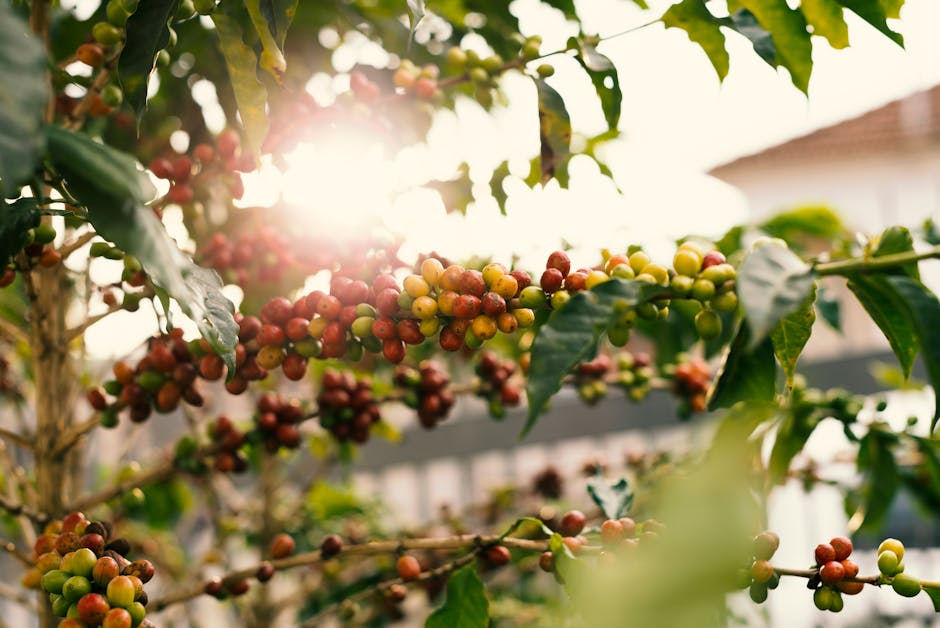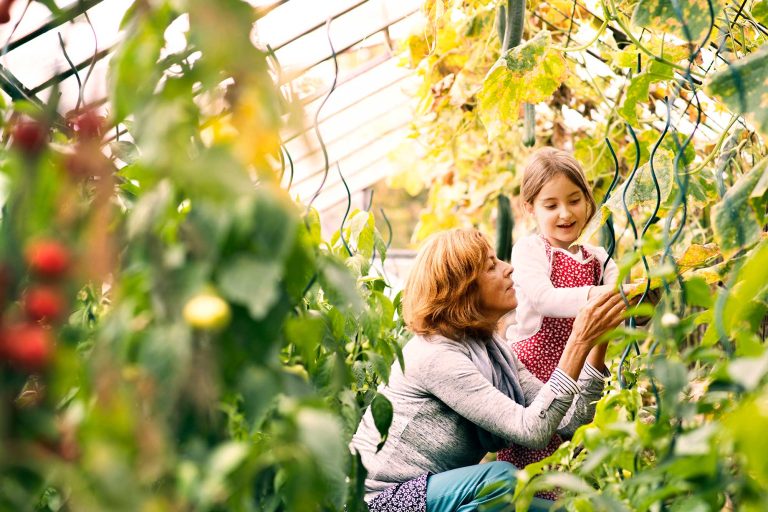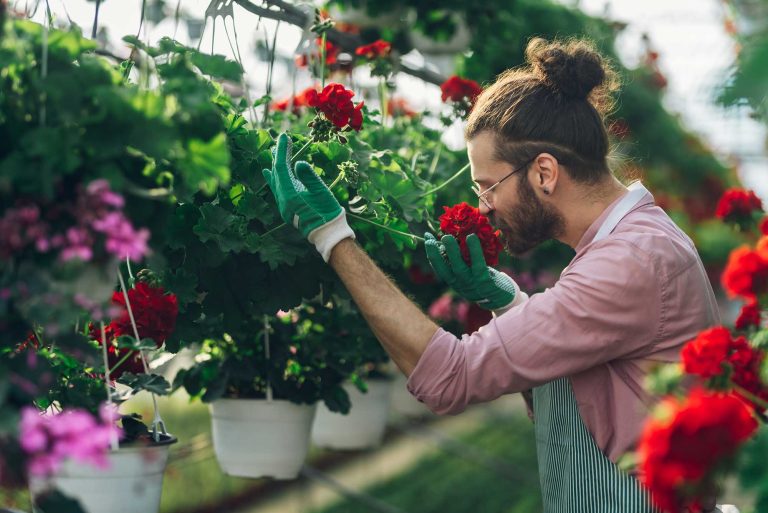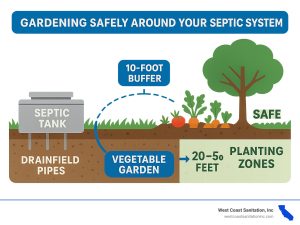Ever wondered if your morning coffee could be more than just a pick-me-up? Imagine turning those used coffee grounds into a secret weapon for your garden.
Yes, the idea of recycling coffee waste into plant nourishment is not just a trendy hack—it’s backed by science. As a gardener, you constantly seek ways to nurture your plants and watch them thrive. But could the answer be as simple as what’s left in your coffee filter each morning?
Before you toss those grounds, let’s explore how they might be the hidden gem your garden needs. Uncover the truth about coffee grounds and transform your gardening game. Stick around to find out how this humble waste product could revolutionize your green space!
Benefits Of Coffee Grounds
Coffee grounds enrich soil, offering essential nutrients for garden plants. They improve drainage and attract beneficial worms, promoting healthier growth.
When you sip your morning coffee, those leftover coffee grounds might seem like waste. However, they could be a treasure for your garden. Reusing coffee grounds can provide several benefits to your plants, transforming your garden into a thriving ecosystem.Nutrient Content
Coffee grounds are rich in essential nutrients like nitrogen, potassium, and phosphorus. These nutrients are crucial for plant growth and can boost the health of your garden. Sprinkling coffee grounds around your plants can offer a slow-release fertilizer. Have you noticed your plants looking a bit dull? This could be the nutrient boost they need.Soil Improvement
Adding coffee grounds to your soil can improve its structure. They help in creating more aeration and drainage, which can be particularly beneficial if your soil is heavy and compacted. Mixing coffee grounds with your compost can enhance the organic matter in your soil. This leads to better water retention and healthier root development. Does your garden soil feel like a brick during summer? Coffee grounds might be your simple solution.Pest Deterrent
Coffee grounds can act as a natural pest deterrent. Their texture and scent can keep unwanted pests like slugs and snails at bay. Sprinkle a border of coffee grounds around plants that are often attacked by pests. This can be an eco-friendly alternative to chemical pesticides. Have you ever struggled with slugs munching on your lettuce? Give coffee grounds a try and watch those pests retreat. Using coffee grounds in your garden not only recycles waste but also contributes to healthier plants. Are you ready to transform your garden with just a cup of coffee?
Credit: groundtoground.org
Using Coffee Grounds In The Garden
Coffee grounds are beneficial for garden plants. They enrich the soil with essential nutrients. Moreover, they improve drainage and aeration, helping plants grow better.
Using coffee grounds in the garden can boost plant health. They are rich in nitrogen, making them a great addition to compost. Their texture can improve soil structure. Many gardeners swear by their benefits. But how do you use them correctly?Application Methods
Sprinkle coffee grounds directly on the soil. Mix them into the top layer. This helps with aeration and water retention. Another method is to add them to compost. This will enrich your compost pile. Coffee grounds can also be used as mulch. Spread them around plants to retain moisture.Best Plants For Coffee Grounds
Some plants thrive with coffee grounds. Roses love the extra nutrients. Hydrangeas benefit from the acidity. Blueberries and azaleas are good candidates too. Root crops like carrots and radishes can also benefit. Avoid using them on tomatoes as they may not respond well.Safety Precautions
Too much can harm your plants. Limit the amount used. A thin layer is enough. Fresh grounds are acidic. Use them sparingly if your soil is already acidic. Test your soil pH first. Avoid using them near seedlings. They may hinder growth. Always mix them into the soil well.Potential Drawbacks
While coffee grounds can be a great addition to your garden, they aren’t without their pitfalls. It’s important to be aware of potential drawbacks before you start sprinkling them around your plants. Understanding these can help ensure your garden thrives rather than struggles.
Over-acidification
One common concern with using coffee grounds is the risk of over-acidifying your soil. Coffee grounds are naturally acidic, and while a bit of acidity can benefit certain plants, too much can lead to nutrient imbalances.
For instance, vegetables like tomatoes and broccoli prefer neutral to slightly alkaline soil. Using too many coffee grounds might hinder their growth. Consider testing your soil’s pH levels regularly if you plan to use coffee grounds, to maintain the right balance.
Impact On Beneficial Insects
Coffee grounds might also affect the insect ecosystem in your garden. While they can deter pests like slugs and snails, they might also discourage beneficial insects from sticking around.
Bees, for example, are crucial for pollination and might avoid areas with heavy coffee ground use. Are you willing to risk a decline in your garden’s friendly pollinators? Balancing pest control with promoting beneficial insects is key.
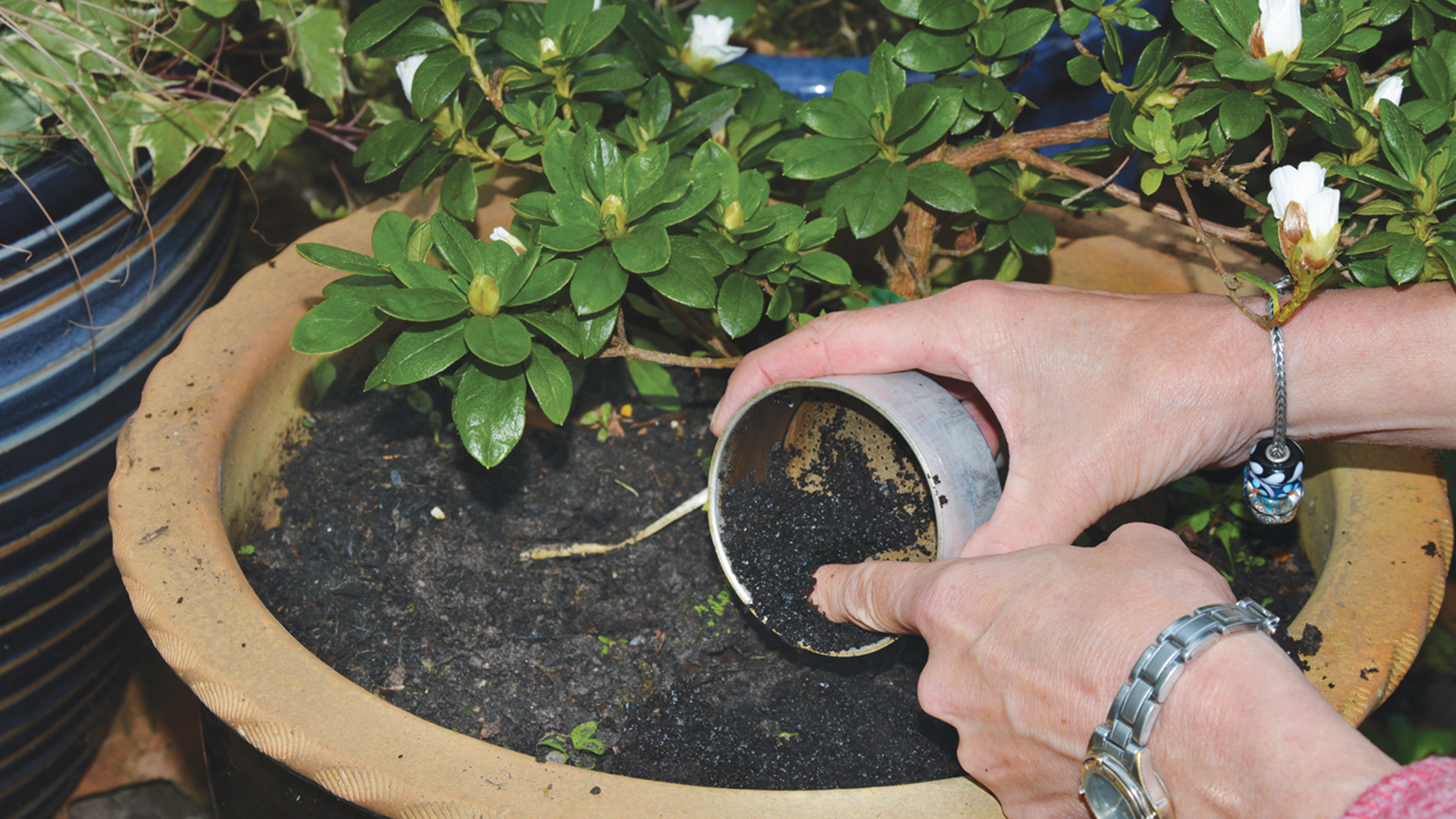
Credit: www.womanandhome.com
Comparing With Other Organic Amendments
Coffee grounds can enrich soil with nitrogen, benefiting garden plants. They compare well to other organic amendments like compost and manure, offering a sustainable option for gardeners.
Comparing coffee grounds with other organic amendments can help you make informed decisions for your garden. Each organic amendment offers unique benefits, but understanding their differences can enhance your gardening strategy. Let’s dive into how coffee grounds stack up against compost, mulch, and manure.Compost
Compost is the gold standard for enriching soil. It provides a balanced nutrient mix that supports plant growth. Unlike coffee grounds, which are more acidic, compost can help neutralize soil pH. Have you noticed how compost improves soil texture? It’s because it boosts microbial activity, enhancing soil structure. But is compost enough for your specific gardening needs? While compost is versatile, you might miss the caffeine boost that coffee grounds offer. Experiment by combining them to see what works best for your garden.Mulch
Mulch serves as a protective layer over soil, retaining moisture and regulating temperature. Coffee grounds can act as a fine mulch, but they might compact too much if applied thickly. This can restrict air and water flow, something you should watch out for. Mulch like wood chips or straw can offer more substantial coverage and are less prone to compacting. However, using coffee grounds as a light mulch layer around acid-loving plants, like blueberries, can be a clever move.Manure
Manure is rich in nutrients and helps improve soil fertility. It might be more potent than coffee grounds, especially in nitrogen content. However, manure can sometimes be too strong and burn plants if not aged properly. Coffee grounds, on the other hand, are much gentler and can be used without the risk of burning. Are you ready to mix and match? A blend of manure and coffee grounds might give your garden the nutrient boost it needs, minus the harshness. Each amendment has its pros and cons, and the best choice depends on your garden’s specific needs. Could a combination of these options be the secret to thriving plants?Tips For Effective Use
Coffee grounds can be a beneficial addition to your garden. They enrich the soil and help plants thrive. To make the most of them, use them correctly. Here are some tips for effective use that will enhance your gardening experience.
Frequency Of Application
Use coffee grounds sparingly in your garden. Applying them too often may harm plants. Once every two weeks is usually sufficient. This ensures that the soil maintains balance. Overuse can lead to nutrient imbalances. Monitor your plants for any signs of distress. Adjust the frequency if needed.
Combining With Other Fertilizers
Coffee grounds work best with other organic matter. Mix them with compost or organic fertilizers. This combination boosts soil health. It provides a wide range of nutrients. Coffee grounds are rich in nitrogen. But plants need more than just nitrogen. Combining them ensures balanced nutrition. This helps in robust plant growth. It enhances the soil structure as well.

Credit: www.youtube.com
Frequently Asked Questions
Can Coffee Grounds Improve Soil Quality?
Yes, coffee grounds can enhance soil quality by adding organic matter. They improve drainage, water retention, and aeration in the soil. Coffee grounds also provide essential nutrients like nitrogen, potassium, and phosphorus. However, use them in moderation to avoid altering soil pH levels excessively.
Do Coffee Grounds Repel Garden Pests?
Coffee grounds can repel some garden pests due to their scent and texture. Slugs and snails dislike crawling over grounds, so they may avoid treated areas. Additionally, caffeine can deter ants. However, coffee grounds are not a foolproof method, and other pest control measures may be needed.
Are Coffee Grounds Acidic For Plants?
Coffee grounds are slightly acidic, but their impact on soil pH is minimal. Most plants can tolerate the slight acidity they introduce. Used coffee grounds are less acidic than fresh ones. It’s wise to test soil pH regularly to ensure optimal growing conditions for your plants.
How Often Should I Use Coffee Grounds?
Using coffee grounds once a week is generally safe for most garden plants. Sprinkle them evenly over the soil or mix them into compost. Overuse can lead to excessive acidity or nutrient imbalance. Monitor plant health and adjust usage accordingly for the best results.
Conclusion
Coffee grounds can benefit garden plants. They enrich soil with nutrients. Acid-loving plants thrive with coffee grounds. They improve drainage and aeration. Coffee grounds deter pests, keeping plants safe. But use them in moderation. Too much can cause harm. Mix with other compost materials.
Test soil pH before using. Each garden is unique. Try coffee grounds and observe results. Adjust based on plant needs. Small changes can make big differences. Coffee grounds might be the boost your garden needs. Enjoy healthier plants and a vibrant garden.
Simple steps can bring great rewards.
